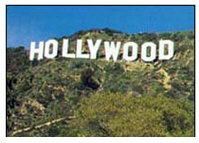The new meaning of programming

Guest post: Robert Young looks at what media programming means in the Internet age, and how the rise of social media is shifting control away from modern day Hollywood and established media giants...
Some of you might be familiar with the seminal whitepaper that David Isenberg published back in 1997 titled “The Rise of the Stupid Network” (for a great commentary, read Tom Evslin’s post here). Isenberg, who was a researcher with AT&T Labs at the time, foretold of how the Internet would disrupt the world’s telecommunications infrastructure and industry by shifting the “intelligence” of the network from the center to the edge. If you can imagine a vast army of uncontrollable media programmers storming the gates, you'll start to understand why Hollywood is so fearful of the Internet. VoIP (e.g. Skype, Vonage, GoogleTalk, etc.), of course, is the early manifestation of what he was describing and the transformation to a “stupid” telecommunications network with programming functionality at the edges is now all but inevitable. That said, the subject matter of this piece isn’t about telecommunications. Rather, it’s about Hollywood… and what I see as Tinseltown’s version of The Rise of the Stupid Network.
Just like the word “network” has two meanings in the aforementioned context, I love the word “programming” for the same reason. That one word, in my view, sums up the radical transformation that’s occurring as the Internet gradually usurps and devours… er I mean… convergences with Hollywood.
We all know what programming means in the world of technology. It refers to the science and skill of writing a computer program. While programming was once a domain reserved for academics and engineers with advanced degrees, the combination of improved tools and the ubiquity of the web has democratized programming to a point where virtually anyone can participate in the creative process.

But what happens when broadcast networks start putting up TV shows on the web, like ABC and Fox announced last week. Put another way, what happens to the value and need for traditional media programming when a show is placed on a non-linear medium like the web? Does making a show viewable on-demand negate the need for programming?
In my view, the need for programming will actually increase. But, the source and control over media programming will shift away from the exclusive club of Hollywood executives into the hands of the audience. Consequently, a third definition of the word programming is emerging. It’s a hybrid of the two traditional definitions, yet one that I believe will ultimately define the transformation that we are going through. And the fuel for this transformation is the rise of social media (e.g. blogs, social networks, etc.).
To illustrate where I’m going with this, I’ll provide a very simple example. You’re surfing the net and you come across a very funny video. You happen to have a blog, so you decide to blog about it and include an outbound link to the destination site with the video. I like to call this type of hyperlink to media a “microchannel”, and guess what? What you just did made you a media programmer… just like the ones in Hollywood! Now, multiply this behavior by another 100+ million bloggers and users of social networking sites like MySpace. What you end up with is a growing collective of millions of media programmers developing a massively distributed and decentralized media guide comprised of a gazillion microchannels. Bye, bye TV Guide.
In short, social media is rapidly decentralizing and democratizing the act of programming media out to the edges. As a result, I believe that traditional network programming of channels will be replaced by social media programming of microchannels. So if you can imagine a vast army of uncontrollable media programmers storming the gates, you’ll start to understand why Hollywood is so fearful of the Internet. After all, losing that kind of control is a threat unlike anything they’ve ever seen, and it’s one that goes to the very heart of power in the media industry.
Rupert Murdoch made a bold move to exploit this massive shift in control and power by acquiring MySpace. With one move, he has effectively hedged his bet by owning the two opposing forces that are in a death match over the control of directing people’s attention to media. Whichever wins, he wins. It was a brilliant move, classic Murdoch. Or at least that’s the way it seems on the surface.
There’s only one problem. Even if a media giant owns the social network, blogging platform, or any other kind of social media service, it is not actually buying “control” over the programming and distribution of media. That privilege will remain with the people, and as such, the jury is still out as to whether online communities are an asset that can create a net advantage for traditional media companies, or a liability that can accelerate the loss of control. For the media companies, social media programming is double-edged sword that can cut both ways.
But there’s hope on the horizon… new models and services are emerging that capture this transformation in a manner that will benefit individuals and content providers alike. For instance, if I were a media company, I would be keeping close tabs on Mary Hodder’s new venture, Dabble.com.
Bio: Robert Young is a serial entrepreneur who is currently focused on www.weedshare.com, a P2P-enabling “superdistribution” digital media service. Previously, he was an exec at Delphi Internet Services (which he sold to Rupert Murdoch’s News Corp.), and founder/ceo of Freemark Communications (where he led the invention of free email and pay-per-click advertising). He can be reached at RYoung800@gmail.com.